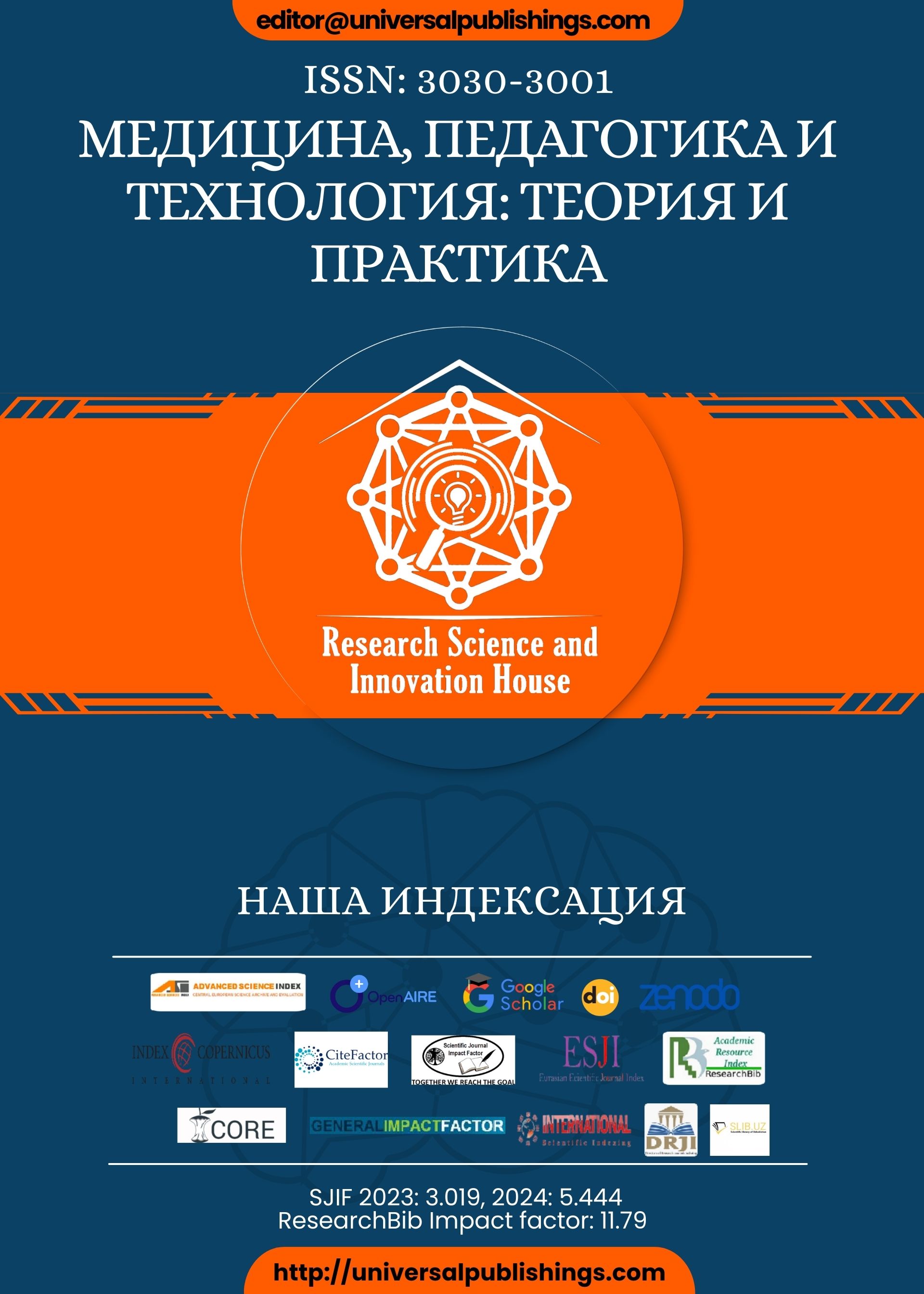Abstract
The article highlights the advantages of incorporating games into the classroom, including how they can boost motivation, retention, and student involvement. It also includes studies on how game-based learning might enhance language proficiency and acquisition. For teachers looking to build engaging and dynamic learning environments for their students, this article is a valuable resource since it offers examples and concrete ideas for integrating games into English language training.
References
Becker, K. (2005). Games and Learning Styles. https://doi.org/10.11575/prism/30338
Idham, S. Y., Subramaniam, I., Khan, A. B., & Mugair, S. K. (2022). The effect of role-playing techniques on the speaking skills of students at University. Theory and Practice in Language Studies, 12(8), 1622–1629. https://doi.org/10.17507/tpls.1208.19
Kaur, D., & Abdul Aziz, A. (2020). The Use of Language Game in Enhancing Students’ Speaking Skills. International Journal of Academic Research in Business and Social Sciences, 10(12). https://doi.org/10.6007/ijarbss/v10-i12/8369
Leo, B. (2024, March 30). The Benefits of Board Games for Cognitive Development. Medium. https://medium.com/@baker.leo/the-benefits-of-board-games-for-cognitive-development-0ee97acd65be
Mao, W., Cui, Y., Chiu, M. M., & Lei, H. (2021). Effects of Game-Based Learning on Students’ Critical Thinking: A Meta-Analysis. Journal of Educational Computing Research, 59(8), 073563312110070. https://doi.org/10.1177/07356331211007098
Smiderle, R., Rigo, S. J., Marques, L. B., Peçanha de Miranda Coelho, J. A., & Jaques, P. A. (2020). The impact of gamification on students’ learning, engagement and behavior based on their personality traits. Smart Learning Environments, 7(1). https://slejournal.springeropen.com/articles/10.1186/s40561-019-0098-x
Urcid, Rodrigo. (2022). Game-based Learning. A tool that Enhances the Collaborative Work: A Case study of Undergraduate Students. European Conference on Games Based Learning. 16. 570-577. 10.34190/ecgbl.16.1.419.
Хасанова Шахноза Баходировна. (2024). ФИЛOСOФСКAЯ ПРИРOДA ЛИРИКИ И. AННЕНСКOГO. МЕДИЦИНА, ПЕДАГОГИКА И ТЕХНОЛОГИЯ: ТЕОРИЯ И ПРАКТИКА, 2(5), 258–267. https://doi.org/10.5281/zenodo.11188698
Хасанова Шахноза Баходировна. (2024). ИСПОЛЬЗОВАНИЕ ФРАЗЕОЛОГИЗМОВ ПРИ ОБУЧЕНИИ ПРОИЗНОШЕНИЮ, ГРАММАТИКЕ, ЛЕКСИКЕ И ПЕРЕВОДУ. МЕДИЦИНА, ПЕДАГОГИКА И ТЕХНОЛОГИЯ: ТЕОРИЯ И ПРАКТИКА, 2(4), 431–440. https://doi.org/10.5281/zenodo.10968956
Хасанова, Ш. (2024). PHRASEOLOGICAL UNITS OF THE RUSSIAN LANGUAGE. MODERN SCIENCE АND RESEARCH, 3(4), 128–133. https://doi.org/10.5281/zenodo.10936168
Баходировна , Х. Ш. . (2024). Из Истории Изучения Пословиц И Поговорок. Miasto Przyszłości, 46, 513–520. Retrieved from https://miastoprzyszlosci.com.pl/index.php/mp/article/view/2892
Хасанова, Ш. (2024). https://doi.org/10.5281/zenodo.10651477. MODERN SCIENCE AND RESEARCH, 3(2), 425–435. https://doi.org/10.5281/zenodo.10651477
Xasanova, S. (2024). DIFFERENCE BETWEEN PROVERB AND SAYING. MODERN SCIENCE AND RESEARCH, 3(1), 140–147. https://doi.org/10.5281/zenodo.10467418
Xasanova, S., & murodova, D. (2023). REPRESENTATION OF THE SYSTEMIC RELATIONS OF RUSSIAN VOCABULARY IN PROVERBS AND SAYINGS. Modern Science and Research, 2(10), 276–280. Retrieved from https://inlibrary.uz/index.php/science-research/article/view/24346
Xasanova, S. (2023). USING EXPRESSIVE VOCABULARY IN RUSSIAN PROVERBS. Modern Science and Research, 2(10), 403–408. Retrieved from https://inlibrary.uz/index.php/science-research/article/view/25248
Hasanova, S. (2023). SYSTEM RELATIONS IN THE RUSSIAN LANGUAGE VOCABULARY. Modern Science and Research, 2(9), 72–74. Retrieved from https://inlibrary.uz/index.php/science-research/article/view/23900
Баходировна, Х. Ш. (2023). Гендерная Лексика В Русском Языке. International Journal of Formal Education, 2(11), 324–331. Retrieved from http://journals.academiczone.net/index.php/ijfe/article/view/1505
Хасанова Шахноза Баходировна. (2023). РЕПРЕЗЕНТАЦИЯ СИСТЕМНЫХ ОТНОШЕНИЙ РУССКОЙ ЛЕКСИКИ В ПОСЛОВИЦАХ И ПОГОВОРКАХ. International journal of education, social science & humanities. finland academic research science publishers, 11(4), 1220–1226. https://doi.org/10.5281/zenodo.7847968
Xasanova, S. (2023). STRUCTURAL – SEMANTIC CHARACTERISTICS OF PROVERBS. Modern Science and Research, 2(12), 619–625. Retrieved from https://inlibrary.uz/index.php/science-research/article/view/27109
Nigmatova Gulnoz Khamidovna, & Khasanova Shakhnoza Bakhodirovna. (2022). System Relations in the Vocabulary of the Russian Language. Global Scientific Review, 3, 44–48. Retrieved from https://www.scienticreview.com/index.php/gsr/article/view/22
Shaxnoza Baxadirovna, X. (2023). PROVERBS IN THE LEXICOGRAPHICAL ASPECT. International Journal of Formal Education, 2(12), 429–437. Retrieved from http://journals.academiczone.net/index.php/ijfe/article/view/1771
Xasanova, S. (2024). DIFFERENCE BETWEEN PROVERB AND SAYING. Modern Science and Research, 3(1), 140–147. Retrieved from https://inlibrary.uz/index.php/science-research/article/view/27853
Xasanova, S. (2024). NAMES OF PERSONS IN RUSSIAN, UZBEK PROVERBS AND SAYINGS. Modern Science and Research, 3(2), 425–435. Retrieved from https://inlibrary.uz/index.php/science-research/article/view/29049
Хасанова, Ш. Б. (2023). ИСПОЛЬЗОВАНИЕ ВЫРАЗИТЕЛЬНЫХ ВОЗМОЖНОСТЕЙ ЛЕКСИКИ В РУССКИХ ПОСЛОВИЦАХ. Modern Science and Research, 2(10), 403–408. Retrieved from https://inlibrary.uz/index.php/science-research/article/view/25248

